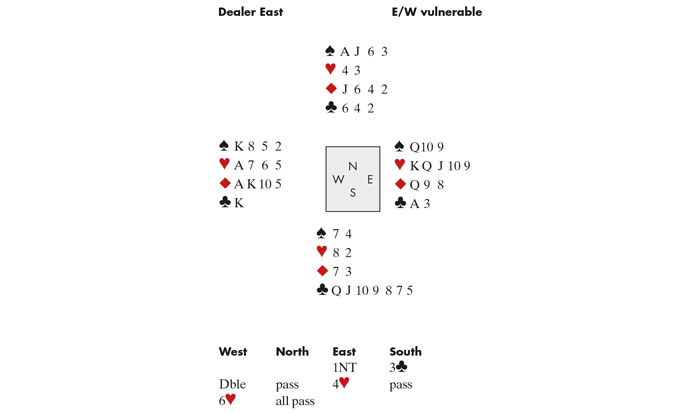You can always tell a beginner, or a poor player, at the bridge table — they’re the ones who start cashing their tricks as soon as dummy comes down. Any reasonable player knows the importance of stopping to think: of counting winners and losers, and working out a strategy. But it’s the mark of a really good player to never entirely trust their first thoughts. As Tom Townsend once advised me with his usual pithy wit: ‘Think of a plan. Now think of a better one.’
Eric Rodwell makes precisely this point in his brilliant book The Rodwell Files, which I’m reading at the moment. He warns us to double-check our decisions to ensure we haven’t missed something — maybe something an opponent can do to foil us, or simply a better plan. But it’s surprisingly hard to do — and he admits he sometimes falls short himself, even when playing in world championships. On this deal from the 1997 Bermuda Bowl he made his contract, yet still kicked himself afterwards as he hadn’t taken the best line:
South led the ♣Q. Rodwell (East) won in dummy, drew trumps, tested the diamonds and then successfully played North for the ♠J. But he realised afterwards that he had missed a better plan: draw trumps, cash the ♣A, play two rounds of diamonds ending in hand and then play a spade to the king. If North takes the ace and returns the suit he doesn’t need to risk losing to a doubleton jack: he can take the queen and run trumps to squeeze North in diamonds and spades.






Comments